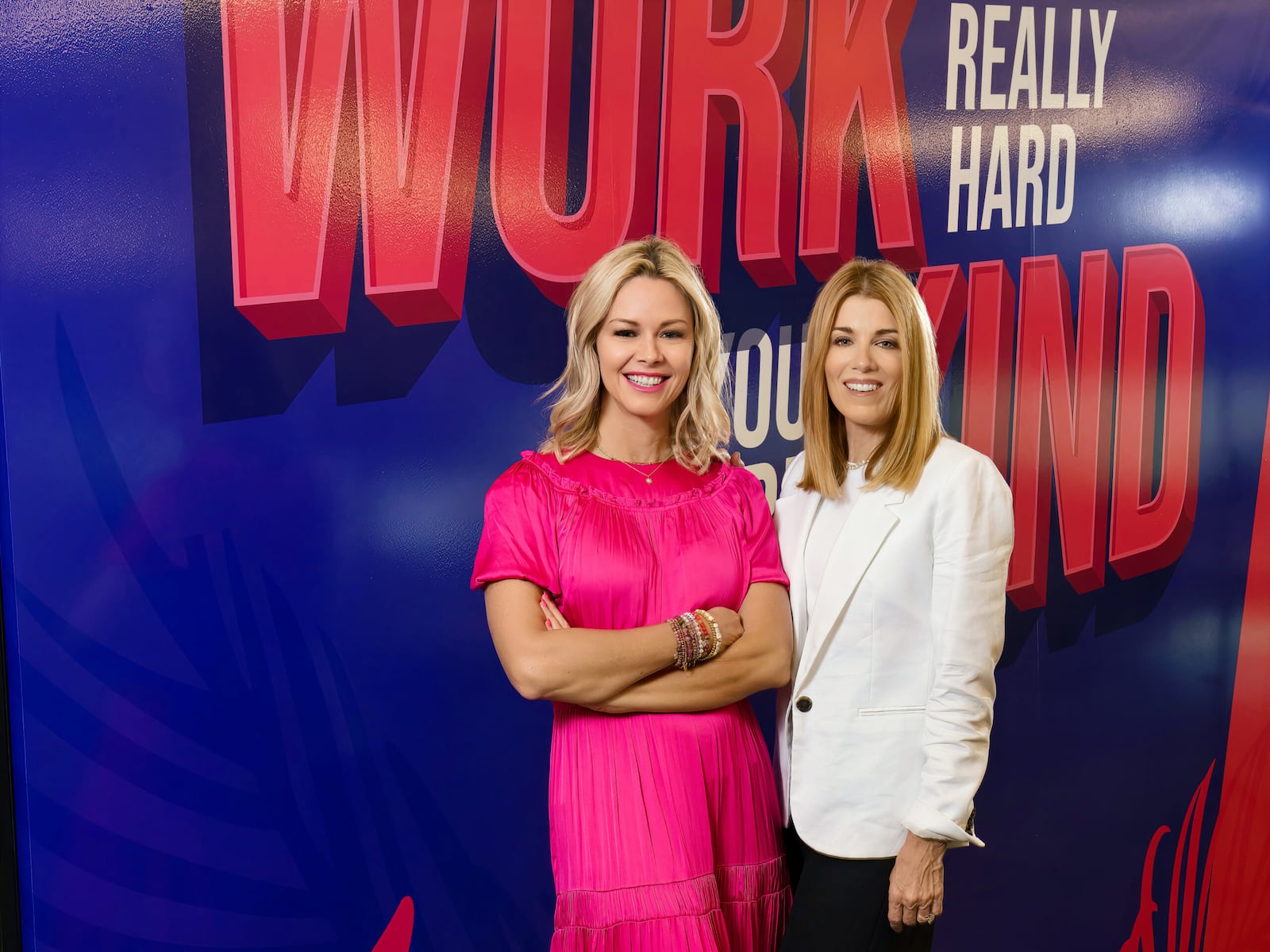Photo by Dave Labrum, shot on location at Clearlink
This article originally appeared in Modern Day Utah Pioneers, a publication sponsored by Clarke Capital.
Growing up in San Francisco, Kristin Andrus never imagined she’d someday pioneer new pathways in family philanthropy in Utah. Yet, over the past few years, she has stepped visibly and authentically into the role of community builder and is leaving an indelible mark on the state’s nonprofit landscape.
Andrus attributes her innate desire to care for others to her parents’ example of being engaged in the community and continually giving back. Andrus recalls that her parents prioritized service and led by example, which motivated her to join the Big Brothers Big Sisters Program while attending the University of Utah.
Years later, Andrus’ unique journey in family philanthropy gained traction through her social media influence. She began using Instagram in 2014 when she and her husband Jeremy—the former president and CEO of Skullcandy—bought a “tiny company called Traeger Grills.” Andrus began using the username “justadash,” but when the marketing manager at Traeger suggested that people were missing out on the best parts of her life, she decided to pivot. Andrus changed her handle to her name and used her energetic and captivating style to “give.” Whether through sharing recipes, online workouts or marriage and family advice, Andrus’ goal was to add value to other’s lives.
Soon after, a pivotal point in the Andrus family’s giving journey arrived. After several successful business wins in her husband’s career, the couple deliberately decided to increase their efforts in helping people, causes and nonprofit organizations.
“I was always doing things along the way, but that is when we really decided we were going to take the path less traveled,” Andrus says. “We were going to serve and give back. We both decided on the path we wanted to take; we just didn’t know what that path would look like. We didn’t fall into it. It is a choice we make every day.”
Andrus used social media to learn about nonprofits, underserved groups and individuals who needed help. She started showing up and posting about her experiences. She was vulnerable in her process, admitting that she didn’t have the solutions but recognizing what she did have: a desire to connect people, an extensive online network, resources to give and a caring heart. From organizing diaper donations for the women’s shelter to befriending refugee families and filling up her garage with period products for schools and homeless shelters, Andrus used her social media influence positively and selflessly to influence, educate and invite others to participate alongside her. This, Andrus says, is the “magic in life.”
Before sharing these stories, Andrus takes the time to sit with them. “I sit in the stories of women and children to truly understand their plight,” she says. “[Through this,] I understand things at a deeper level than I could from just writing a check…and the solutions I would have come up with would not have been what is actually needed if I hadn’t sat down and really asked.”
Both on-screen and off, Andrus is a force for good with a heart of gold who always strives to maximize her capacity. No project is too big or small because, in the end, it is all about people and human connection.
Andrus has demonstrated her desire to help individuals and families, but she is also tackling problems that impact thousands of lives. Andrus founded SisterGoods to help provide period products to the Utah Food Bank. Soon after, she joined forces with Emily Bell McCormick and The Policy Project to successfully help change Utah policy in two areas (with a third in the works). Thanks to her online megaphone, groups of volunteers in bright pink shirts began leading community service projects statewide. Within a year, Utah passed HB162 to provide free period products in public school bathrooms and women’s shelters.
Without pause, Andrus and McCormick began working on a new initiative. With persistence, love and light blue T-shirts, they successfully raised $18 million in public and private funds for the statewide expansion of teen centers for 54 Utah high schools. The organization is now donning lavender T-shirts to raise awareness and dollars toward state mandates to educate and protect Utah children from sexual abuse.
“We all have our own unique skills and talents and ways of lifting our community,” Andrus says, and she applauds all types of philanthropy and involvement. Some write checks to nonprofits. Some volunteer their time and talents to nonprofits through fundraising, creating awareness or helping to provide direct services. Then there are those like Andrus, who do all the above and more, like hosting regular gatherings in her home for hundreds of nonprofit leaders to build bridges with others in the sector. When it comes to the pursuit of creating meaningful philanthropic impact, Andrus seems to have thought of everything.
Whether it’s through changing policy at the state level, organizing clothing drives or inviting others to pack back-to-school backpacks for kids, Andrus can’t stop herself from finding a need and using her voice to bring others along to help. Time and again, she shows her pioneering spirit through community building, hard work, determination and selflessness. Utah’s generations are—and will continue to be—grateful for her lasting impact.

